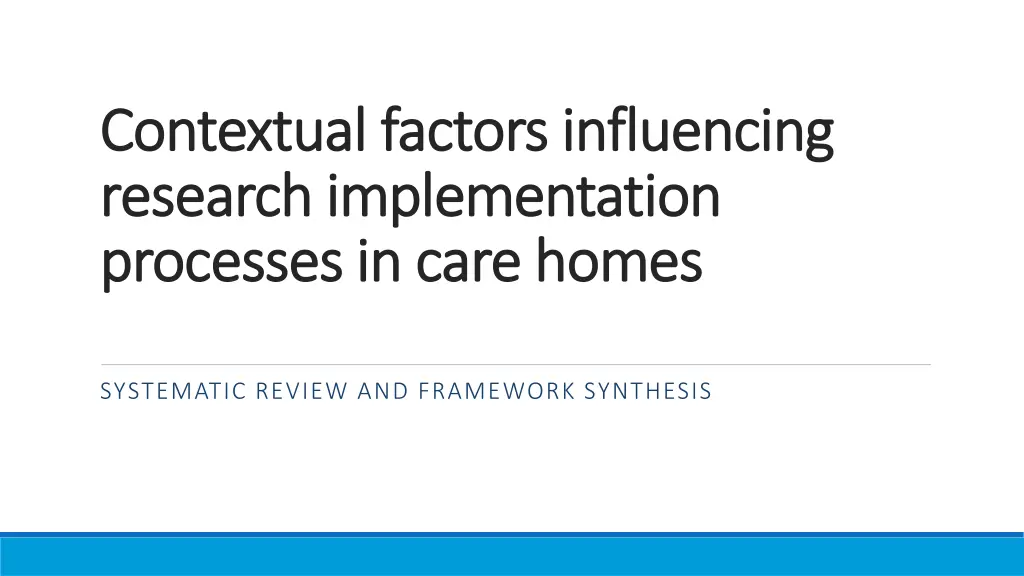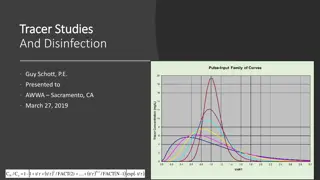
Influencing Research Implementation in Care Homes - Systematic Review
Explore the contextual factors influencing the research implementation processes in care homes through a systematic review and framework synthesis. Discover key findings on procedural drift, participatory action learning, and recommendations to support ENRICH, CRN, and RDS initiatives.
Download Presentation

Please find below an Image/Link to download the presentation.
The content on the website is provided AS IS for your information and personal use only. It may not be sold, licensed, or shared on other websites without obtaining consent from the author. If you encounter any issues during the download, it is possible that the publisher has removed the file from their server.
You are allowed to download the files provided on this website for personal or commercial use, subject to the condition that they are used lawfully. All files are the property of their respective owners.
The content on the website is provided AS IS for your information and personal use only. It may not be sold, licensed, or shared on other websites without obtaining consent from the author.
E N D
Presentation Transcript
Contextual factors influencing Contextual factors influencing research implementation research implementation processes in care homes processes in care homes SYSTEMATIC REVIEW AND FRAMEWORK SYNTHESIS
NIHR funded 5 large multi-site cluster RCTs in Care Home settings seeking to identify definitive evidence between 2013 and 2020. The combined research award amounted to over 8.5million. Motivationforthe review All produced Neutral findings. Are we confident these studies have internal validity? To study this required an analysis of trial conduct What actually happened?
Included 33 process evaluations of care home trials - conducted in parallel to the evaluation of intervention effectiveness Used a systems thinking approach inclusive of multiple interacting factors Method Categorised data using the SEIPS model as a framework Conducted a thematic analysis on the extracted data
Key Findings 1: Procedural Drift 2: The need for Participatory Action Learning The most prevalent contextual factors contributing to protocol deviations: i. Compatibility of the intervention with care routines, ii. Time and resources required to complete the research tasks, iii. Staff motivation, the perceived benefit of the intervention, and attitude to change, iv. Collaborative approaches in completing research tasks, v. Existing workload pressures, and vi. Staff turnover.






















